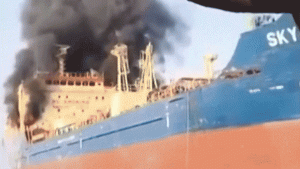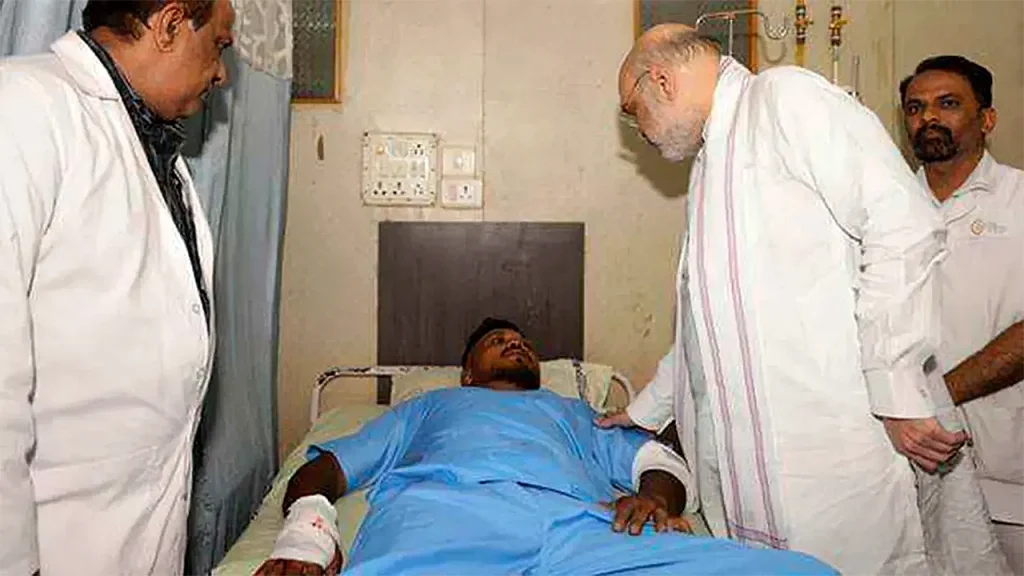Sole Survivor of Air India Crash Grapples with Life After Tragedy
In the wake of the devastating Air India crash in Ahmedabad, 39-year-old Viswashkumar Ramesh finds himself in the painful position of being the only survivor. Speaking to BBC News, Ramesh described the complex emotions of being labeled the “luckiest man alive” while simultaneously mourning his younger brother who perished in the crash. “I lost my brother as well. My brother is my backbone,” he shared with profound grief. “Last few years, he was always supporting me.” The London-bound Boeing 787 crashed moments after takeoff, killing 241 passengers and crew. For Ramesh, his miraculous escape through an opening near his seat (11A) after unbuckling his seatbelt has left him with not just physical wounds, but deep emotional scars that have fundamentally altered his life and relationships.
Since returning to his home in Leicester, Ramesh has withdrawn into isolation, struggling to reconnect with his family. “Now I’m alone,” he explained. “I just sit in my room alone, not talking with my wife, my son. I just like to be alone in my house.” This emotional distancing reflects the severe post-traumatic stress disorder he’s battling daily. The crash itself remains too painful to discuss in detail, with memories haunting his nights. “I’m thinking all night, I’m suffering mentally,” he confessed. “Every day is painful for the whole family.” What should have been a routine flight has transformed into a life-defining tragedy that separates his existence into distinct before and after periods, with the present marked by profound suffering and isolation.
The physical toll of surviving such a catastrophic event continues to impact Ramesh’s daily functioning. He describes persistent pain in his legs, shoulders, knees, and back that prevents him from working or driving – basic activities that once formed the foundation of his independent life. “When I walk, not walk properly, slowly, slowly, my wife helps,” he explained, highlighting his new dependence on others. Though he was diagnosed with PTSD while hospitalized in India, his advisors note he hasn’t received further treatment since returning to the UK. This gap in mental health care represents a broader issue of support for survivors of such traumatic events, who often require extensive ongoing treatment to process their experiences and rebuild their lives.
The crash of Air India flight AI 171, which occurred just five minutes after takeoff at 1:38 p.m. local time, has left a community in mourning. The Boeing 787-8 Dreamliner, bound for London’s Gatwick Airport, crashed into a residential area called Meghani Nagar with 242 souls onboard. Video footage captured smoke rising from the wreckage as Ramesh, with visible but minor injuries, stumbled away from the destruction – an image that became symbolic of both miracle and tragedy. Even Indian Prime Minister Narendra Modi visited him in the hospital, recognizing the exceptional nature of his survival. Yet for Ramesh, being the sole survivor carries a heavy burden of survivor’s guilt as he mourns his brother who had been his primary support system in recent years.
Community leader Sanjiv Patel and family spokesman Radd Seiger, who have been advocating for Ramesh, describe him as “lost and broken.” They’ve called repeatedly for senior Air India officials to meet with Ramesh and other families affected by the crash, only to have their requests ignored or declined. “They’re in crisis, mentally, physically, financially,” Patel emphasized. “It’s devastated his family.” Seiger added, “The people who should be sitting here today are the executives of Air India. Please come and sit down with us so that we can work through this together to try and alleviate some of this suffering.” Their pleas highlight a perceived gap between corporate responsibility and human compassion in the aftermath of disaster, where victims’ families often feel abandoned by the very institutions they trusted with their safety.
Air India, now owned by Tata Group, has responded to these criticisms by stating that company leaders have continued to visit families of victims and that an offer to meet Ramesh’s representatives “remains open.” In a statement to BBC News, the airline insisted that care for Ramesh and others affected by the crash “remains our absolute priority.” Yet the disconnect between these corporate assurances and the lived experience of those suffering remains stark. For Ramesh, each day brings continued physical pain, emotional isolation, and the impossible task of reconciling his survival with the loss of his brother and 241 others. His story serves as a poignant reminder that surviving a catastrophe is only the beginning of a long, difficult journey toward healing – one that requires not just medical care but compassionate, consistent human support from both loved ones and the institutions involved.














